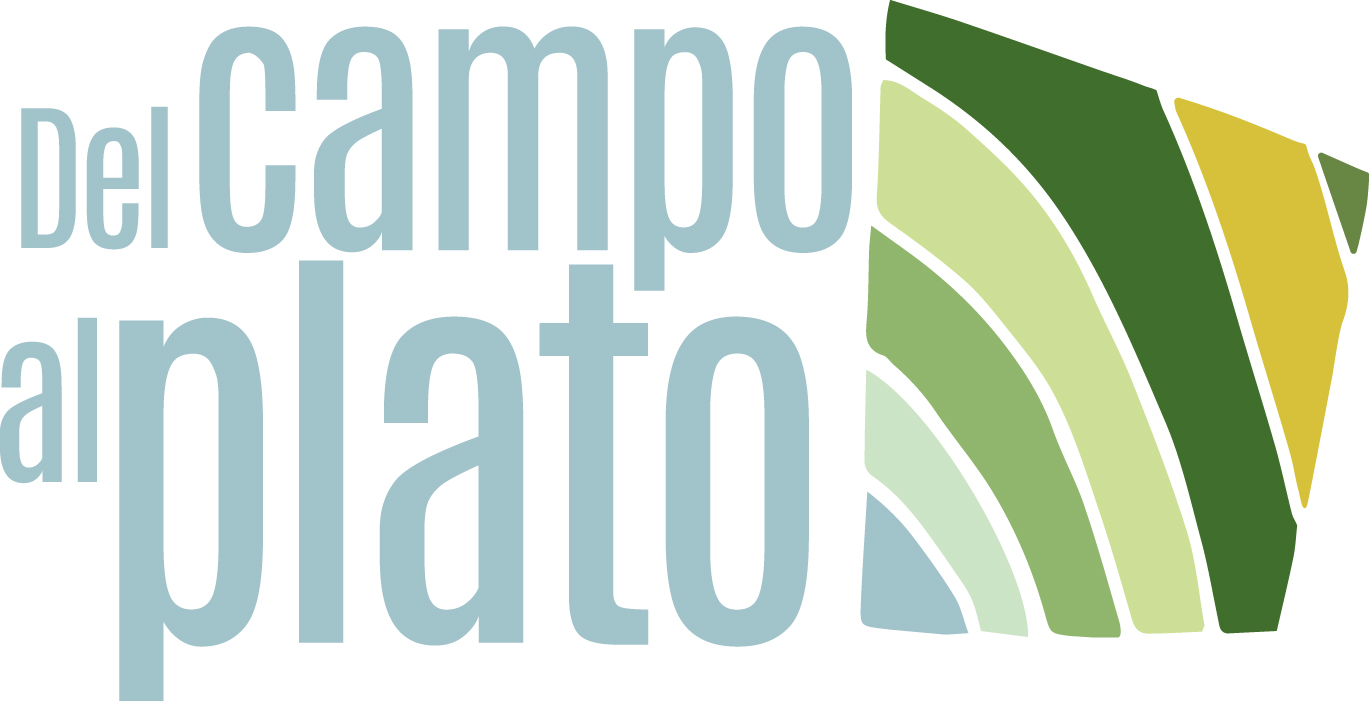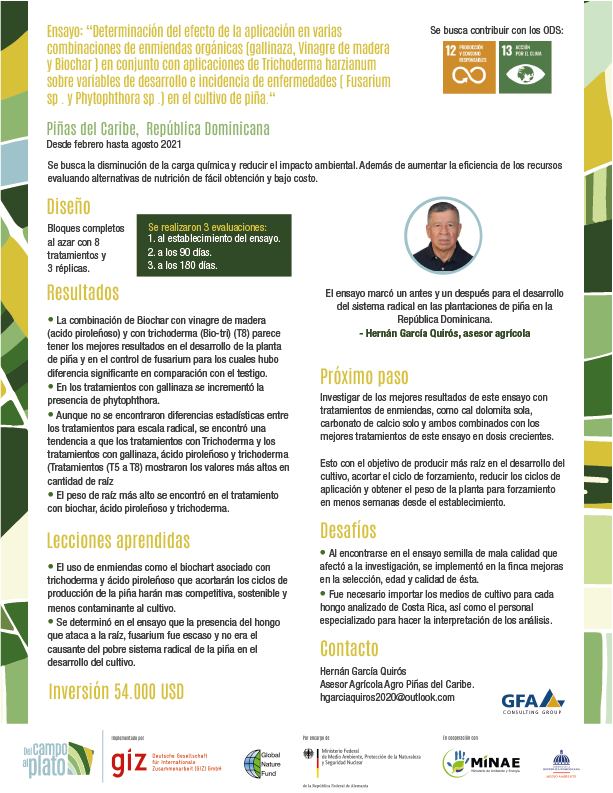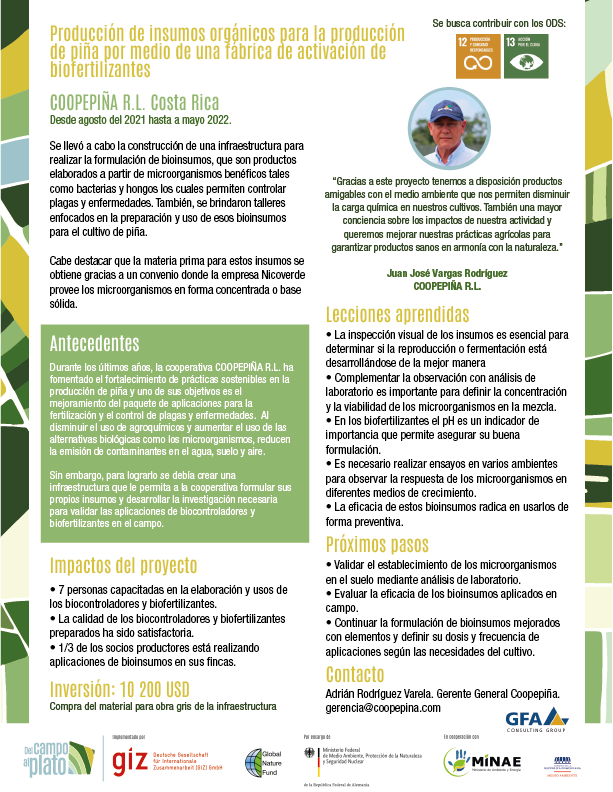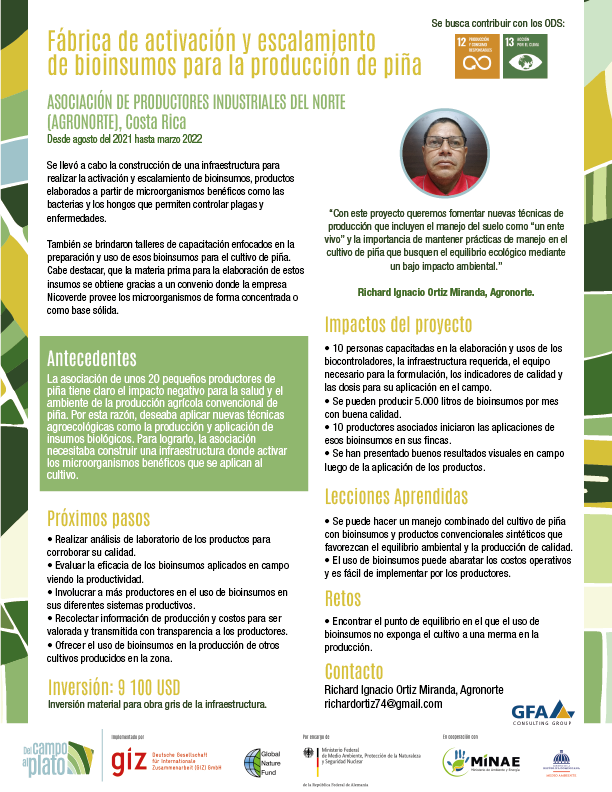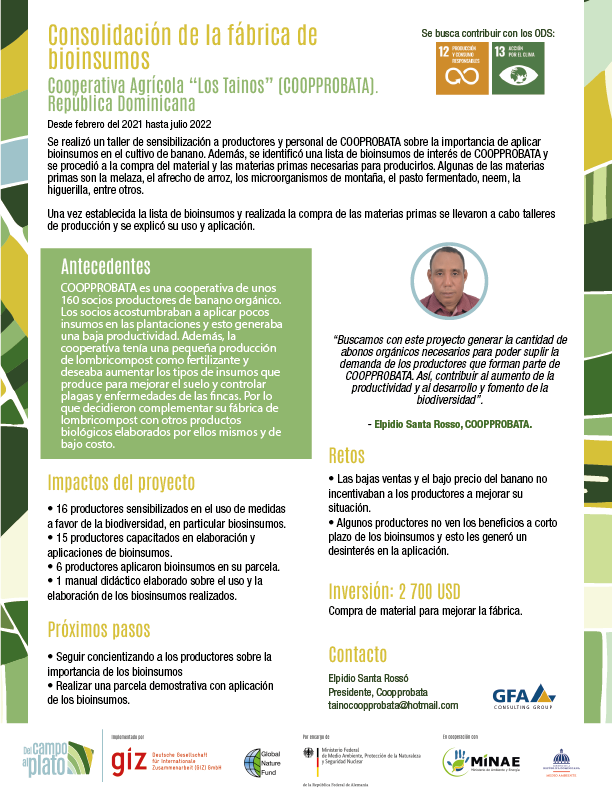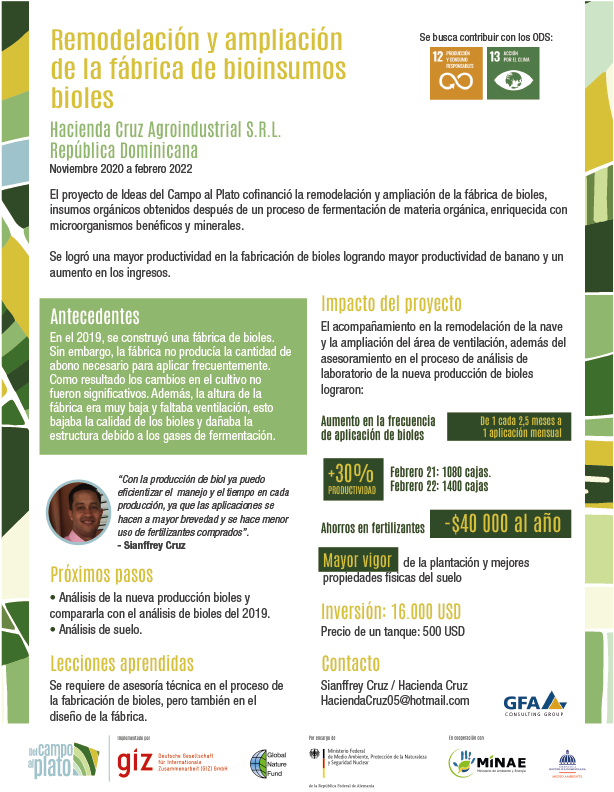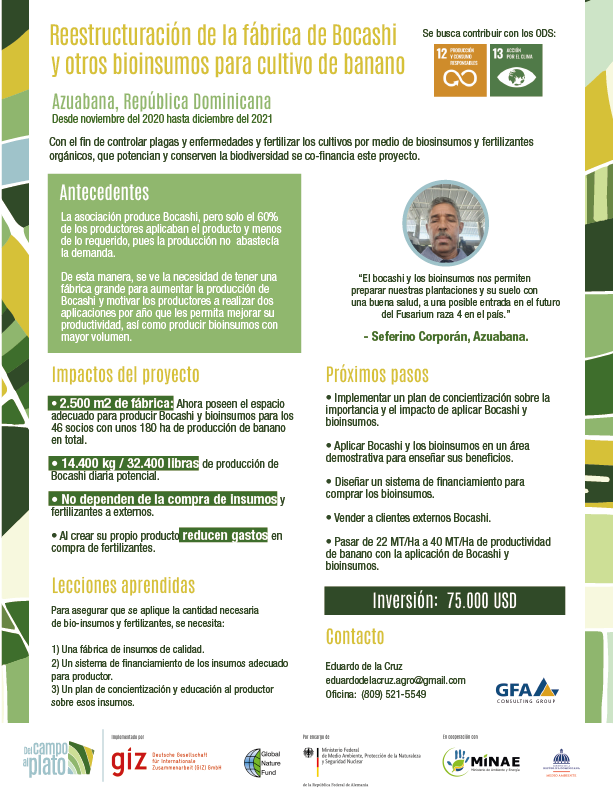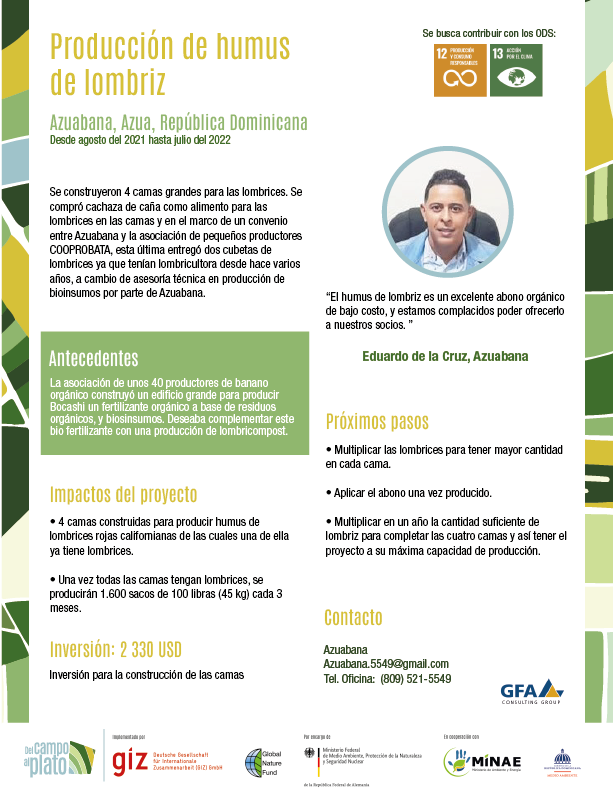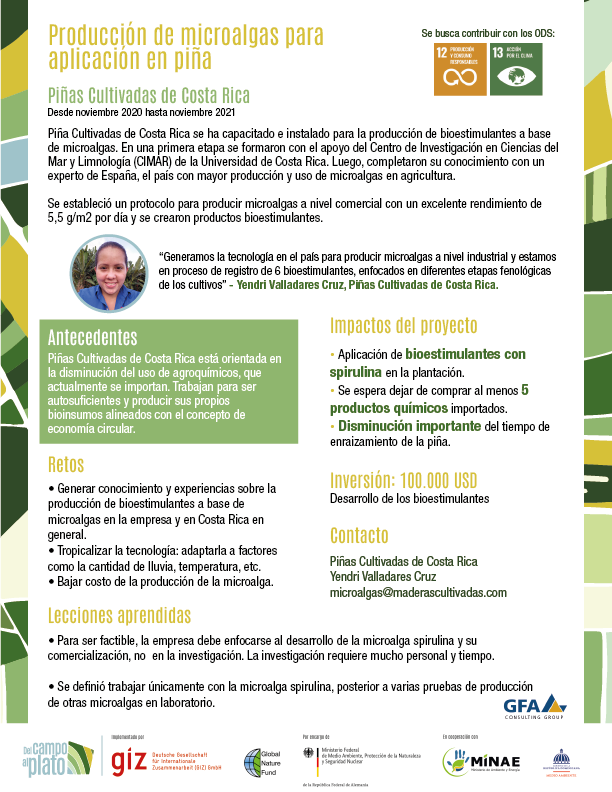Decrease in the use of agrochemicals
Use of organic amendments and biological control in pineapple plantations
Dominican Republic
In 2021, Piñas del Caribe conducted a trial in its pineapple plantations to analyze the effect of applying different combinations of organic amendments. The effect of using Trichoderma harzianum for biological control of fungal diseases such as Fusarium and Phytophthora was also investigated.
Through this trial it was determined that the use of amendments such as biochar together with Trichoderma and pyroligneous acid could be the best performing combination for pineapple development and Fusarium control. This will make pineapple cultivation more competitive, sustainable and less polluting.
Biofertilizer and biocontroller factory for pineapple production
Costa Rica
Between 2021 and 2022, Coopepiña built a bioinput factory based on beneficial organisms for pineapple plants. These organisms (fungi and bacteria) act as biological pest and disease controllers. By reducing the use of agrochemicals and increasing the use of biological alternatives, water, soil and air pollution is reduced.
The project made it possible to train people in the preparation and use of biofertilizers and biocontrollers, which have proven to be of satisfactory quality. One of the three producer partners is already applying bioinputs on their farms.
Factory for activation and upscaling of bioinputs for pineapple production
Costa Rica
Between 2021 and 2022, Agronorte built a factory for the activation and upscaling of bioinputs made from beneficial microorganisms such as bacteria and fungi. These microorganisms control pests and diseases. Capacity building workshops were held on the preparation and use of these bioinputs for pineapple cultivation.
Considering the negative impact of conventional pineapple production on the environment, it is important to develop and apply new agroecological techniques. Several people were trained and associated producers began applying bioinputs on their farms. It was determined that it is possible to produce 5,000 liters of good quality bioinputs per month.
Bioinputs factory for banana production
Dominican Republic
Between 2021 and 2022, COOPROBATA conducted a workshop for producers and staff on the importance of applying bioinputs in banana plantations. Bioinputs of interest were identified and the materials needed to produce them were purchased. Production workshops were held and their use and application were explained.
Several producers were sensitized and trained in the development and application of biodiversity-friendly measures, particularly bioinputs. In addition, an educational manual was prepared on the use and production of the bioinputs. There are plans to create a demonstration plot with the application of these products.
Organic fertilizer factory for banana production
Dominican Republic
Between 2020 and 2022, Hacienda Cruz Agroindustrial remodeled and expanded its organic fertilizer factory. These fertilizers are obtained after a fermentation process of organic matter enriched with beneficial microorganisms and minerals.
Thanks to this project, co-financed by From farm to fork, an increase in the frequency of organic fertilizer application and banana productivity was achieved. In addition, large savings in fertilizers were made and the physical properties of the soil were improved.
Bokashi factory for banana cultivation
Dominican Republic
To increase bokashi production and motivate banana producers to apply it, Azuabana restructured its bokashi factory. Bokashi is a solid organic fertilizer that results from a fermentation process that eliminates pathogens.
The project contributed to the optimization of the factory, which now has adequate space to produce bokashi. As a result, the production of large quantities of bokashi is now possible, it is no longer necessary to purchase external fertilizers, and costs are reduced. In the future, a plan to raise awareness on the importance and impact of bokashi will be implemented.
Production of earthworm humus
Dominican Republic
Between 2021 and 2022 Azuabana built 4 large earthworm beds to produce humus. As part of a collaboration, COOPROBATA provided the necessary earthworms in exchange for technical advice on bioinput production from Azuabana.
Once all the beds have worms, 1,600 45kg bags of humus will be produced every 3 months. The plan is to multiply the worms in order to have the project at maximum production capacity. Worm humus is an excellent and inexpensive organic fertilizer.
Production of microalgae for pineapple cultivation
Costa Rica
Between 2020 and 2021, Piñas Cultivadas de Costa Rica was trained in the production of biostimulants based on microalgae. The training was provided by the University of Costa Rica and an expert from Spain. A protocol was established to produce microalgae at a commercial level and biostimulant products were created.
The project has enabled the application of biostimulants with spirulina in pineapple plantations, which has helped reduce rooting time. It is expected that at least 5 imported chemical products will no longer be purchased.
